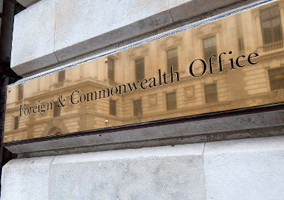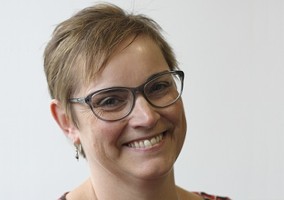Faith-based organisations must work with beneficiaries rather than form a white saviour relationship, the Catholic Agency for Overseas Development (CAFOD) has said.
Speaking at the Faith Charities Forum yesterday, CAFOD director Christine Allen said charity should be more about solidarity than pity and that voluntary organisations should avoid creating unequal power relations.
“Tackling white saviourism is such an important concept for us as faith-based organisations,” she said.
“It's so critical for us to have humility, because that's part of what our faith tells us. Our faiths are truly global and we are all brothers and sisters in God.”
‘It’s not about feeling sorry for people’
Allen, who has been director of CAFOD for three years, emphasised the importance of charities working with beneficiaries, rather than doing things to them, so as not to create unequal power relations that replicate a white saviour relationship.
“Within the Catholic tradition, solidarity isn't about feeling sorry for people and nor is it charity. Charity is a response. In the words of the Pope, it’s ‘a firm and persistent determination to achieve change’.
“It's a sense of our commitment to walking and working with and alongside people. Solidarity is about doing with not doing to, and it's a realisation of our shared humanity.”
‘Someone else’s pain is connected to our gain’
She continued: “We strive to make the causes of people in need our own. Not that we’re their saviours or the answers to their prayers. We take on together that shared endeavour, because we recognise that someone else's pain is also intimately connected to our benefit, and our gain, whether it be historically or currently, through the economic realities of our world.
“So, solidarity is a massively key principle throughout Catholic social teaching. And it's rooted in the biblical call to love God and love your neighbour as yourself. That's the best definition of solidarity.”
Allen also brought up the cost-of-living crisis and criticised the charity sector’s “obsession” with growth despite an incoming recession.
“Despite the cost-of-living crisis, there's still a flipping big obsession with growth. And obviously, in a time of an economic crisis, that's when the barriers go up but at the same time, the need goes up in our society, the need is greater than ever. And that's even before we start talking internationally.
“We're in an environment, frankly, where our political agenda is quite punitive. Fundamentally about well, we've got to look after ourselves, you only have to look at the narratives towards refugees and migrants or that our aid spending has been slashed, and it's gone without a whimper. Not, that I hasten to add, that aid is the answer.”
She said she believes that no strategy, whether for a secular or faith-based organisation, can be meaningful unless it is put into practice.
Related articles












